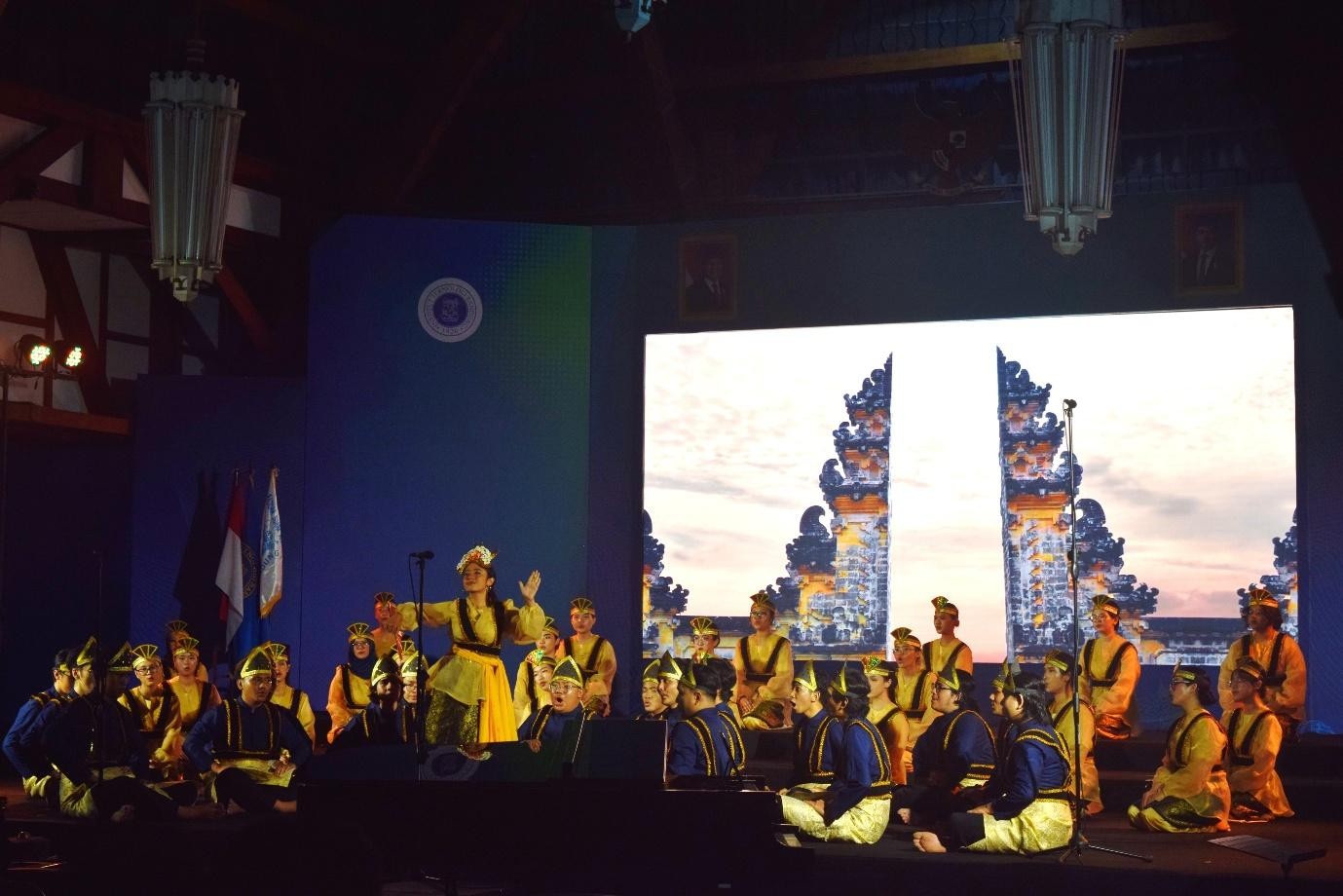ITB Postgraduate PMB 2023: Fostering Stronger and More Innovative Scholarly Capacity
By Anggun Nindita
Editor Anggun Nindita
BANDUNG, itb.ac.id - Institut Teknologi Bandung (ITB) has recently admitted a total of 5,669 new students for the Academic Year 2023/2024. This figure is distributed among different educational levels, including Bachelor's, Master's, and Professional Programs.
There are a total of 974 new students enrolled in the Postgraduate Program, which began in August 2023 for the odd semester. There are a total of 868 students enrolled in the Master's Program and 106 students in the Doctoral Program.
All students enrolled in the Postgraduate Program participated in the New Student Admission (PMB) event, which took place in person at the ITB Ganesha Cultural Building (Sabuga ITB) on Monday, August 14, 2023.
The event commenced with a presentation by Prof. Dr. Ir. Jaka Sembiring, M.Eng., ITB's Vice-Rector for Academic and Student Affairs. During the event, Professor Jaka stated that the process of selecting new students for ITB took place between January and June 2023.
Professor Jaka also shared data regarding the average age of students enrolled in the Master's Program, which is 25 years and 11 months. The youngest student is 20.5 years old, while the oldest is 54.75 years old.
The average age of students in the Doctoral Program is 35 years and 9 months. The youngest student is currently 22 years and 7 months old, while the oldest student is 59 years and 2 months old.
Additionally, he stated that the Professional Program has a total of 44 new students, evenly distributed between the Pharmacy Profession and Engineering Profession, with 22 students in each.
Professor Jaka would like to extend his appreciation to all the staff and educational professionals at ITB who played a role, whether directly or indirectly, in the new student admission process this year. He stressed the importance of effective collaboration for the successful execution of the selection process.The event proceeded with the enrollment of new students by ITB's Rector, Professor Reini Wirahadikusumah, Ph.D. The initiation of ITB students was facilitated by newly appointed student representatives from each faculty.
Professor Reini proceeded to deliver her speech, highlighting the significance of cognitive abilities, skills, attitudes, character, and personality. She emphasized that these aspects hold equal importance to academic degrees in the education provided at ITB. According to her, possessing a higher degree is associated with higher expectations for one's attitudes and personality.
The newly enrolled students in ITB's Postgraduate Program took part in an engaging speech session that commenced with a warm welcome and an introduction to ITB's excellent research culture. The presentation was given by Prof. Ir. I Gede Wenten, M.Sc., Ph.D., who serves as ITB's Vice-Rector for Research and Innovation.
He expressed that the presence of cutting-edge technology in a nation is bolstered by robust research efforts. He suggested that advanced research is now more focused on scholarly capacity rather than financial resources. "Advanced research fosters a strong scientific culture," he said.
Following that, Professor Dr. Suprijadi, M.Eng., the Dean of the ITB Postgraduate School, delivered an opening speech for the motivational session held at Sabuga ITB. He clarified that the Postgraduate School serves as a continuation of undergraduate studies. He underlined the importance for Master's Program students to improve their knowledge and initiate research activities. In the Doctoral Program, students are often compared to research consultants.
Prof. Suprijadi also highlighted the presence of the Multidisciplinary Master's Program, which fosters collaboration among various fields of studies.
"The available programs encourage collaboration across various disciplines and open opportunities for collaboration with international partners," he said.
ITB offers a total of nine programs, which include Nano Technology, Health Technology, Science Education 4.0, Digital Technopreneurship, Smart-X, Battery Materials, Disaster Management, Sustainable Biological Tourism, and Design Leadership.
The final segment of the event included a presentation by Professor Dr. apt. Heni Rachmawati on the topic of "Strengthening Excellent Research Culture through Postgraduate Student Research." Heni restated the graduation requirements for postgraduate students, which include the need to publish research papers for both Master's and Doctoral Programs.
She stressed the importance of conducting research as it directly affects the quality of publications. "It's not just about passing; it's also about your future," Heni said.
Additionally, she emphasized the importance of Doctoral Program students possessing the skills to effectively oversee, guide, and advance research endeavors that contribute to the advancement of scientific knowledge and the well-being of society. In addition, Heni accentuated the significance of achieving national or international recognition for research findings that have been published.
The concluding presentation was delivered by Dr. Aqsha, who discussed "Effective Publication Strategies for Postgraduate Student Graduation." During the session, Aqsha provided an overview of various significant reasons for publication. These include enhancing discoverability, promoting scientific progress, fostering collaboration, establishing standards, gaining reputation and recognition, advancing one's career, measuring performance, and receiving incentives.
The information presented offers valuable insights for postgraduate students who are required to publish their work. Aqsha shared information about the organization of research writing and how to choose appropriate journals for publication.
Reporter: Hanan Fadhilah Ramadhani (Civil Engineering 2019)
Translator: Anggi Nurdiani (Management 2021)
Editor: Ariq Ramadhan Teruna (Chemical Engineering 2021)

.jpg)

.jpg)
.jpg)
.jpg)

